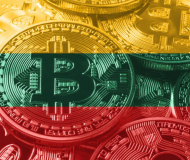One more bank blocked dollar transactions for Latvian correspondent accounts
News:
Date added: 17.11.2017The USA acts in favour of "integrity" of the dollar - one more bank blocked dollar transactions for Latvian correspondent accounts

In September of this year, the largest Bank of China announced the termination of dollar transactions through the accounts of banks-respondents from Latvia. The consequence of this decision is almost complete freezing of certain banks in the Baltic States.
The thing is that financial organizations in Latvia are divided into 2 categories: the first of them is composed of the subsidiaries of Scandinavian "giants" of banking business.
Such organizations have powerful and incalculable base of correspondent dollar accounts, so single cases of blocking have no impact on their activities .
The second category includes all other banks. A
ccording to statistics, the vast majority of their operations are carried out in US dollars.
After the statement of the Bank of China, they were all in a very disadvantageous position, because not many clients are interested in a "no-dollar" bank.
In this situation, not only bank organizations were affected, but also a certain category of clients. Businessmen who work with exchange commodities, for example, with oil or grain, can not abandon the US currency, because the entire market is based on it. Even if they have a couple of "backup plans", the operations for re-signing contracts at customs and with ministries are not conducted within several hours, but can last for months.
Obviously, this situation also can not be profitable for the Bank of China, as one of the emitents of the dollar, because the bank loses customers and get a notable blow to its reputation, which was crashed after such an unpredictable decision. There is only one obvious conclusion: pressure comes from above, from the part of the United States.
The American government is trying to press on Latvia's policy regarding "laundering" of money received by illegal means not for the first time.
No matter how the Latvian banks try to show transparency in their activities, even following all the world standards of banking relations, they can not prove to America the legitimacy of their clients' income.
It should be noted that there is a fundamental difference between the Scandinavian and all other Baltic banks. Banks with "Scandinavian roots" have not opened accounts for many years to either natural or legal non-residents.
If we talk about non-residents from Russia, then after the collapse of the Soviet Union, there were no banks in the country working with the dollar.
Then more than one year was necessary for the banking systems to operate "as they should", according to all international standards. But today the situation is different because all the standards are in place and are complied with, so it's a rarity to get an honest and adequate answer to the question: "Why do you need a dollar account in Latvia, if you live and do business in Russia".
There is an opinion that the majority of such non-resident accounts are opened by Russian citizens.
Hence, there is an assumption that America deliberately puts pressure on Russians in the continuation of sanctions. But if you take into account the number of benefits that Russia has had from these sanctions, it is difficult to adhere to any one conclusion.
In the long term, such a policy of Americans regarding the Baltic States will still bring its advantages. Unpleasant forward and progressive movements with non-resident dollar accounts will only be stronger and,as the result, there will not be the most positive effects within the nearest future.
You can get more detailed advice on the above problemfrom lawyers of the company Law&Trust International.

















